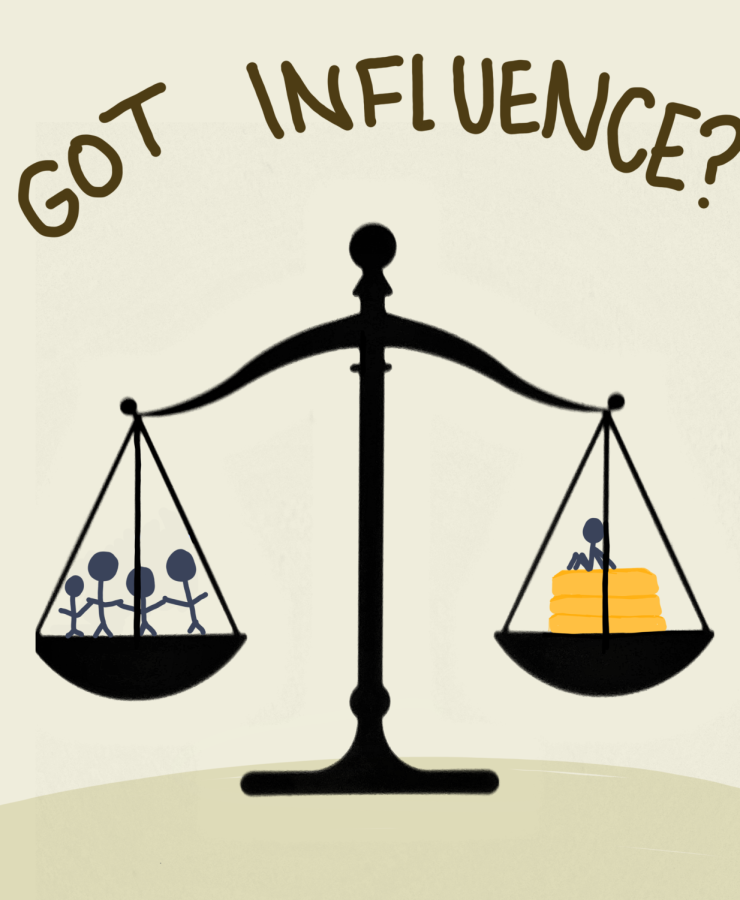The Cost of Billionaires
October 7, 2022
The Gilded Age was a time in the late 19th century when the world was glittering with progress, new money, and jewels. The newfound wealth inspired lavishness that our young nation had never experienced. But underneath the sparkling surface was a level of corruption equally as foreign. Newspaper tycoons were rich in money, and richer in power and influence. A secondary Gilded Age is happening now, with the haunting prominence of billionaires. It seems that wherever billionaires are concerned, the line between unethical and diabolical becomes blurred. With the wealth inequality gap so vast, this issue may be too dire to stay brushed under the rug.
The Washington Post calls today, “another good day to be a billionaire in America.” Money that grows beyond our own comprehension can buy more than fast cars, private islands, and Twitter — it can buy power. Junior Elina Pan says, “They probably have more control over the world than we know. Billionaires probably have other billionaire friends, like politicians.” Bribery. Authority. Greed. This community of scheming and sophistication is called the “power elite,” which Ridge Review defines as, “A relatively small group that has the ability to make substantial decisions that affect the masses.” These underlying patterns of influence are not waiting for us to realize they are there. Whether Jeff Bezos orders coffee or orange juice (or both, because he can) may not affect us, but he and other major players make consequential decisions that move our lives around, like pawns on a chess board. Pan adds, “They choose what to fund. Some billionaires are funding science, and I am positively affected by that, but others would not fund science for girls, so I am less affected in that way.” Freshman Jake Mueller says, “They choose how they want to [affect the world] I assume. They can build things that harm the environment: Jeff Bezos can take down a bridge because his yacht gets stuck. Or he can help.” Society is continually shaped not just by the people holding mass amounts of wealth, but those who do not. From the New York Times, “In the U.S. economy, wealth inequality has exceeded even the peaks of the 1920s.” As a society, we are all too aware of the monstrosity that was the economic situation of the 1920s, yet we have learned nothing, as the same blown out of proportion spectacle occurs: an economic recession. Those with powerful strings to pull clinging to their assets. The rest are left to flounder. The current wealth inequality gap probes at the question, should the title of “billionaire” exist? Sophomore Owen Wengreen says, “No, but there is not a way of stopping it really. Billionaires benefit from their own existence.” In fact, CNN “Found that the average CEO-worker pay gap at the 300 US corporations with the lowest median worker pay hit 670-to-1 in 2021.” It is incomprehensible that the inequality gap could be utterly gaping, leaving so many Americans behind. Billionaires are not without purpose; many have clawed their way to the top, gifting us things like one day shipping and cars equipped with features for your dog. But along the way, human beings’ lives get trampled. The problems within Amazon’s workforce alone are acutely distressing. Big business seems to be based on sacrifice, and as heroic as that appears, billionaires are not the ones who are forced to sacrifice. They still have a mattress that has been named after them to crash into at the end of the day, (seriously, Warren Buffet lays his head down to dream of wise investments on “The Warren”).
Washington is on the offensive for this issue. An article by CNN recites the actions that our state is taking to minimize wealth inequality and wage gaps, and overall, state lawmakers are in support of the Inflation Reduction Act. According to CNN, “The bill would boost IRS enforcement to ensure the ultra-rich pay what they owe instead of getting away with hiding their wealth through complex accounting tricks.” Essentially, this eliminates the under-the-table deals, and sheds light on the mystery that is massive wealth.
The definition of a billionaire may be ironclad. Senior Vernika Jain defines one as “any person that is earning in the billions or more,” and others said overwhelmingly the same. But with the sheer power that is intertwined with outlandish amounts of cash, it seems one can do anything. Undisputedly, billionaires have shaped the world through politics, policies, and news, but they have also had opportunities to contour the culture. There has been unforgettable art and great lengths of philanthropy. Additionally, there have been flame thrower companies, mansions in the heart of poverty, and 12 million dollar fish tanks. This secondary Gilded Age is going to continue to surge unless there is some semblance of accountability. When it is a possibility for one person to change the world, can we afford billionaires?



